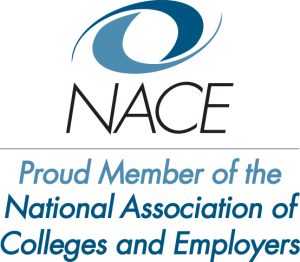Setting The Stage For Career Success As New Grads Enter A Remote Workforce
As a career professional, you’ve likely seen the headlines in major publications lamenting the difficulties new graduates face as they enter a workforce transformed by COVID–and for good reason. New grads are missing out on key pieces of work life that previous generations took for granted: in-person mentorship, water cooler chats, the learning-by-osmosis that happens when you are in constant contact with seasoned professionals in your field.
But remote work is here to stay – and even offices that have reopened are remaining at least partially hybrid in their approach to collaboration and meetings.
The question for career educators is this: How do we prepare soon-to-be graduates for a remote or hybrid work environment? What can be done to mitigate the negatives and help students take the reins in their early careers?
Before students even begin job hunting for that first #PostGrad job, it’s important that they have a strong sense of where they want to go. Find out more in the recent blog from @Pathway_U:Click to TweetStep One: A Clear Sense Of Self
Before students even begin job hunting for that first post-graduation job, it’s important that they have a strong sense of where they want to go. Of course, this doesn’t mean they know the exact job–or even industry–that they’ll land in. But it does mean that students should have an idea of their purpose and what they find meaningful in their work.
This is where a tool like PathwayU can be extremely helpful because having students take the time to reflect on their strengths, interests, and values will help narrow in on the types of careers they will thrive in.
I particularly like the values assessment for soon-to-be grads, and especially those who may be entering the world of remote work, because this tool can help identify how they find fulfillment in their career.
How do we prepare soon-to-be graduates for a remote or hybrid work environment? Find out in @Pathway_U’s latest blog:Click to TweetFor example, walking into the workplace armed with the knowledge that they value relationships at work will help them be conscious of taking the time to build relationships with coworkers–even if it’s over Slack or a virtual happy hour.
Knowing that they thrive when they feel their hard work is recognized by others will help them know to ask for frequent feedback from their manager. Self-awareness is key to success at any stage of life, but it can be incredibly useful for new workers who are trying to get their bearings in the workplace.
Step 2: Connect Them To A Wider Network
The workplace has long been many professionals’ primary source of networking. This is the place where many of us gained our sense of professional and industry norms, where we observed how leaders manage different types of workers, and where we met people who could connect us to additional opportunities down the road.
For new grads in a remote workplace, their limited interactions with coworkers will significantly impact the quantity and quality of networking they are able to do. This is where a career center–in conjunction with the alumni office–can really step in to fill a gap.
It’s time to reimagine and expand the ways we network. Instead of focusing on the workplace, Gen Z will need to create networking opportunities outside of their immediate team members. As career professionals, we can help facilitate this through alumni mentoring opportunities and connecting students to larger industry events.
Talk to your seniors about the many other ways they can connect to professionals, and encourage them to make use of these networks as they transition into a professional world transformed by COVID.
The long and short of it is this: Students entering remote and hybrid workplaces are at a disadvantage. The way to level the playing field is to ensure that they have the self-awareness and confidence to know what they need and advocate for it, and the support systems to guide them along the way.
These students do not have the luxury of figuring it out work norms and relationships on the fly. They will not have the opportunities to observe and absorb–so we need to be explicit in helping them begin their careers with the soft skills and networks that many of us were able to develop over time.
Jen Gose is an education industry thought leader. As a former higher ed administrator with experience in career services and advising, she brings a unique “from the trenches” point of view when writing about many of the challenges our educators face today.
See more about how PathwayU can help you lead students to a successful career through support and valuable resources, schedule a demo today.
-1.png?width=288&height=67&name=PathwayU_PGLogo%20(1)-1.png)











